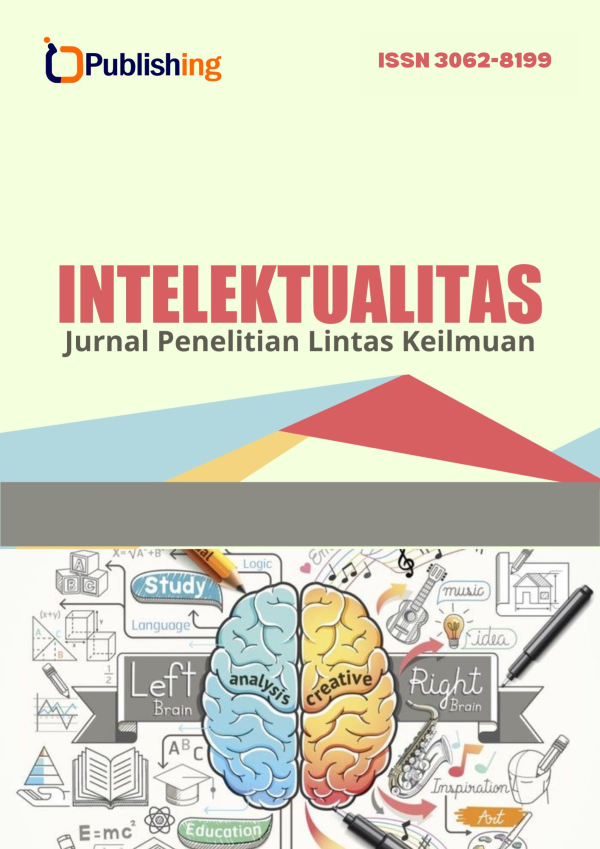Comparative Analysis of The Content of Developing Ethnopedagogical Competence In Future Teachers on The Basis of International Experiences
DOI:
https://doi.org/10.47134/intelektualitas.v2i1.4073Keywords:
Acmeology, Music Education, Innovative Technologies, Teacher, Professional Development, Digital Education, MethodologyAbstract
This article analyzes the role of innovative technologies in the development of acmeological abilities of school music teachers. The study used questionnaires, tests and observation methods, and studied the activities of 60 music teachers. The results showed that innovative technologies are an effective tool for increasing the professional growth and creative potential of teachers. It also identified the need for further development of technical support and methodological knowledge. The article concludes with recommendations and practical suggestions.
References
Aipova, A., Burdina, Y., Kudarova, N., Anesova, A., & Demessinova, G. (2022). Formation of ethno-pedagogical competence of the future teacher in the aspect of modernization of public consciousness. Cypriot Journal of Educational Sciences, 17(9), 2978–2989.
Arvanitis, E., & Tseliou, E. (2022). Insights into teachers’ intercultural and global competence within multicultural educational settings. Education Sciences, 12(8), 502.
Berdymuradova, M. (2025). Pedagogical conditions of educating future teachers in humane spirit using ethnopedagogical materials. Journal of Pedagogical Inventions and Practices, 42, 42–44.
Ivanov, P. N. (2020). Ethnopedagogical foundations in teacher training: Russian experience. Moscow: Nauka.
Kapashova, Z., Mirza, N., Shastsitka, I., Gelmanova, Z., & Makouchyk, A. (2024). Modeling the development of pedagogical competence in higher education educators amid the digitization of the contemporary world. Frontiers in Education, 9.
Kruszewska, A. (2025). Attitudes and motives for choosing to become a teacher: a comparative analysis of self-assessments of female aspirant early years teachers in Polish, Slovak and Czech universities. Education 3-13, 53(3), 325-339, ISSN 0300-4279, https://doi.org/10.1080/03004279.2023.2182163
Lucas, M. (2025). A comparative analysis of pre-service teachers’ readiness for AI integration. Computers and Education: Artificial Intelligence, 8, ISSN 2666-920X, https://doi.org/10.1016/j.caeai.2025.100396
Mieles, J.B. (2025). The Profile of Specific Competencies for Health Sciences Professors: A Comparative Analysis. Revista Cubana de Educacion Medica Superior, 39, ISSN 0864-2141, https://www.scopus.com/inward/record.uri?partnerID=HzOxMe3b&scp=105004270467&origin=inward
Nematov, M. I. U. (2023). Pedagogical conditions of ethno-pedagogic culture development in future teachers. Innovative Technologica: Methodical Research Journal, 3(4), 126.
Niemi, H., & Lavonen, J. (2019). Teacher education in Finland: High competence through cultural values. Nordic Studies in Education, 39(2), 123-140.
Otynshina, G., Dusembinova, R., Odintsova, S., Aidarbekova, K., & Shaushekova, B. (2024). Development of pedagogical competences for future primary school teachers through distance learning. PalArch’s Journal of Archaeology of Egypt/Egyptology, 17(6), 14520–14539.
Pinzenik, O. (2021). Pedagogical conditions for developing intercultural competence in preservice preschool educators. Pedagogical Discourse, 31, 1143.
Raximov, S. (2022). O‘zbekiston ta’lim tizimida etnopedagogik yondashuvlarni modernizatsiyalash. Ta’lim va Taraqqiyot, 5(2), 60-72.
Rosa, A.L. de la (2025). Analysis of prospective teachers’ opinions on linguistic communication competence: A comparative view. South African Journal of Education, 45(1), ISSN 0256-0100, https://doi.org/10.15700/saje.v45n1a2445
Sakhipzhamal, U., & Sarkanbaeva, G. (2023). The main directions of ethnopedagogical training of the future teacher of a foreign language. Pedagogy and Psychology, 55(2), 31–44.
Suzuki, T. (2018). Traditional values and teacher education in Japan: Balancing the past and future. Asia Pacific Journal of Education, 38(4), 487-500.
Tuleuova, Z. (2021). Kazakh ethnopedagogy and its role in modern teacher education. Central Asian Journal of Education, 7(3), 45-58.
Uzakbaeva, S., & Sarkanbaeva, G. (2023). The main directions of ethnopedagogical training of the future teacher of a foreign language. Pedagogy and Psychology, 55(2), 31–44. https://doi.org/10.51889/2077-6861.2023.30.2.026
Yodgorova, G. (2023). Ethnic and cultural factors in modern teacher ducation: A comparative analysis of regional, national, and international experiences. Conferences, 3500.
Zhorabekova, A. (2015). Formation of future teachers’ professional competence on the basis of polylingual approach: The state analysis. International Education Studies, 8(12), 130–137.











